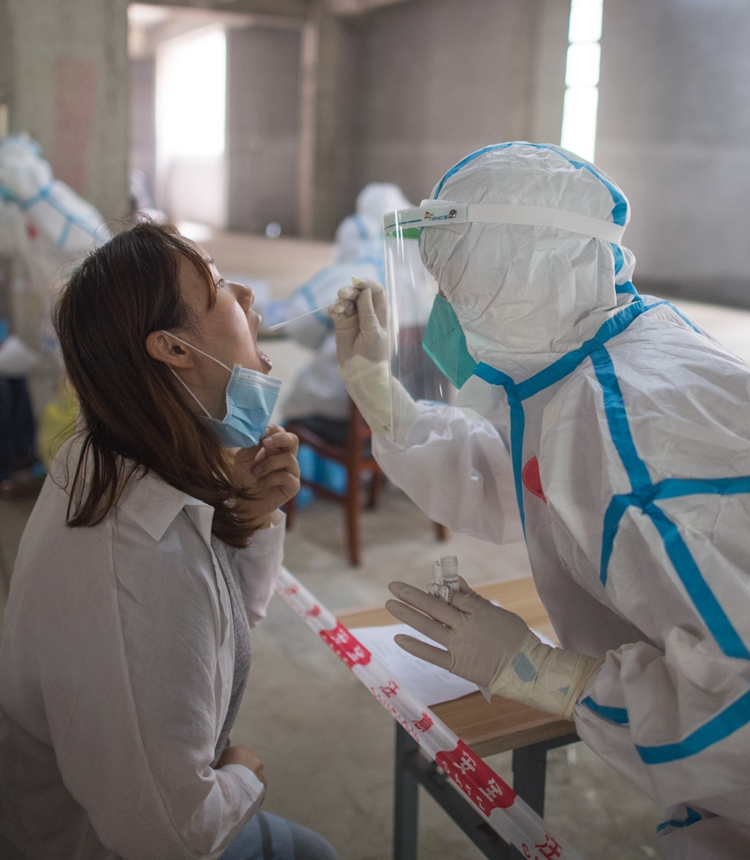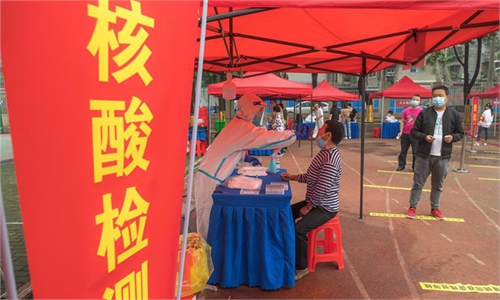
Residents take nucleic acid tests at a testing post set up at a plaza in Wuhan, central China's Hubei Province, May 15, 2020. (Xinhua/Xiao Yijiu)
The city of Sanya in South China Hainan Province reported one confirmed COVID-19 case on Sunday who travelled from Wuhan, Central China's Hubei Province, as part of a tour group on Friday.
The 37-year-old patient, surnamed Hu, comes from Hubei's Tianmen.
She took a nucleic acid test at a local hospital on Wednesday and the result was negative. She then travelled to Sanya by plane on Friday and took another test at the airport upon arrival.
On Saturday, the test came back positive and she was confirmed to be a COVID-19 silent carrier. She is now under treatment in hospital and has no symptoms such as fever and cough.
Hu shared the same flight with 25 other people, who have been quarantined at local isolation centers.
Her close contacts in Hubei and passengers who took the same buses, taxis, bullet train and subway with her will be further investigated.
Sanya has also sent disinfection personnel to the hotel rooms where the patient stayed.
The Chinese mainland reported six new confirmed COVID-19 cases on Sunday, with five imported ones.
As the epidemic eases in China, travel agencies have gradually gone back to business. A Wuhan-based international travel agency told the media on Saturday that they are planning to resume outbound inter-province group tours around the country, starting with Beijing as the first destination in mid-June.
However, Wang Peiyu, a deputy head of Peking University's School of Public Health, warned of clustered infections caused by inbound tourism.
He noted that it is too early to travel around the country, as this would result in gatherings of tens of thousands of visitors in China.
Despite all regions in China now at low risk response level to COVID-19 as of Sunday, it doesn't mean that the epidemic has completely disappeared, Wang said, noting the necessity of adopting restrictions between regions and in indoor public places.


